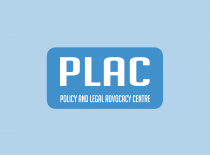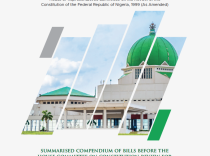In a bid to promote the fundamental rights of inmates in prisons and uphold international standards and best global practices on prison welfare, the House Committees on Interior, Human Rights, Federal Judiciary, FCT Judiciary and Police Affairs will conduct an investigative hearing on prison reforms. The investigative hearing will be held with the objective of identifying the specific challenges prisons face in terms of infrastructure, the administration of criminal justice system and will recommend practical solutions that facilitate prison decongestion and reform.
Presenting the motion on the floor of the House at the plenary session of Wednesday 31 January, 2018 Hon. Olufemi Fakeye (APC: Lagos) raised alarm on the level of congestion in Nigerian Prisons as they had failed to serve as correctional facilities for the reformation of inmates. He noted that statistics from the Prisoners’ Rehabilitation and Welfare Action (PRAWA), in partnership with the Nigerian Prison Service (NPS), indicated that there were a higher percentage of persons awaiting trial in prisons than persons actually convicted. According to this statistics, while 21,354 inmates (comprising of 21,009 males and 345 females) were convicted offenders, 46,756 inmates (comprising 45,765 males and 991 females) were still awaiting trial.
Speaking further, he noted that the current state of prison welfare in Nigeria contradicted the United Nations Minimum Standard Rules for Treatment of Prisoners, also known as the “UN Nelson Mandela Rules”. Rules 12(1) and (2) and 13 entitle every prisoner an individual cell or room for sleeping accommodation at night except in special cases, such as temporary overcrowding. The Rules also enable the prison authority to vary a prisoner’s entitlement to an individual cell or room provided that regard has been paid to climatic conditions, the cubic content of air, minimum floor space, lighting, heating and ventilation. However, he stated that due to the high congestion in virtually almost all the prisons, inmates faced a high risk of epidemics, jailbreaks, crime techniques, anti-social tendencies and moral decadence. He also stated that homosexuality and illicit relationships among others had become a common phenomenon among inmates in prisons due to the high congestion rate.
Hon Fakeye added that the high congestion rate in prisons meant that some cells meant to accommodate about 50 inmates were found to be accommodating up to 150 inmates. The Kirikiri Maximum Security Prison in Lagos, for instance which was built to accommodate 956 inmates, is today occupied by over 2,600 inmates. He also blamed the Courts for continuing to send accused persons to already overcrowded prisons, even when their offences could have been easily disposed with under the Administration of Criminal Justice Act, 2015.
Lastly, he urged the House to vote in favour of the motion as it fell within the objectives of the Criminal Justice System, the primary purpose of governance listed under the Fundamental Objectives and Directive Principles of State Policy in the 1999 Constitution (as amended) and was within the purview of the Fundamental Rights of Nigerians that was contained in several Treaties that Nigeria has signed.
Following this, the House Committees on Interior, Human Rights, Federal Judiciary, FCT Judiciary and Police Affairs were mandated to report back their findings in six (6) weeks for further legislative action.





